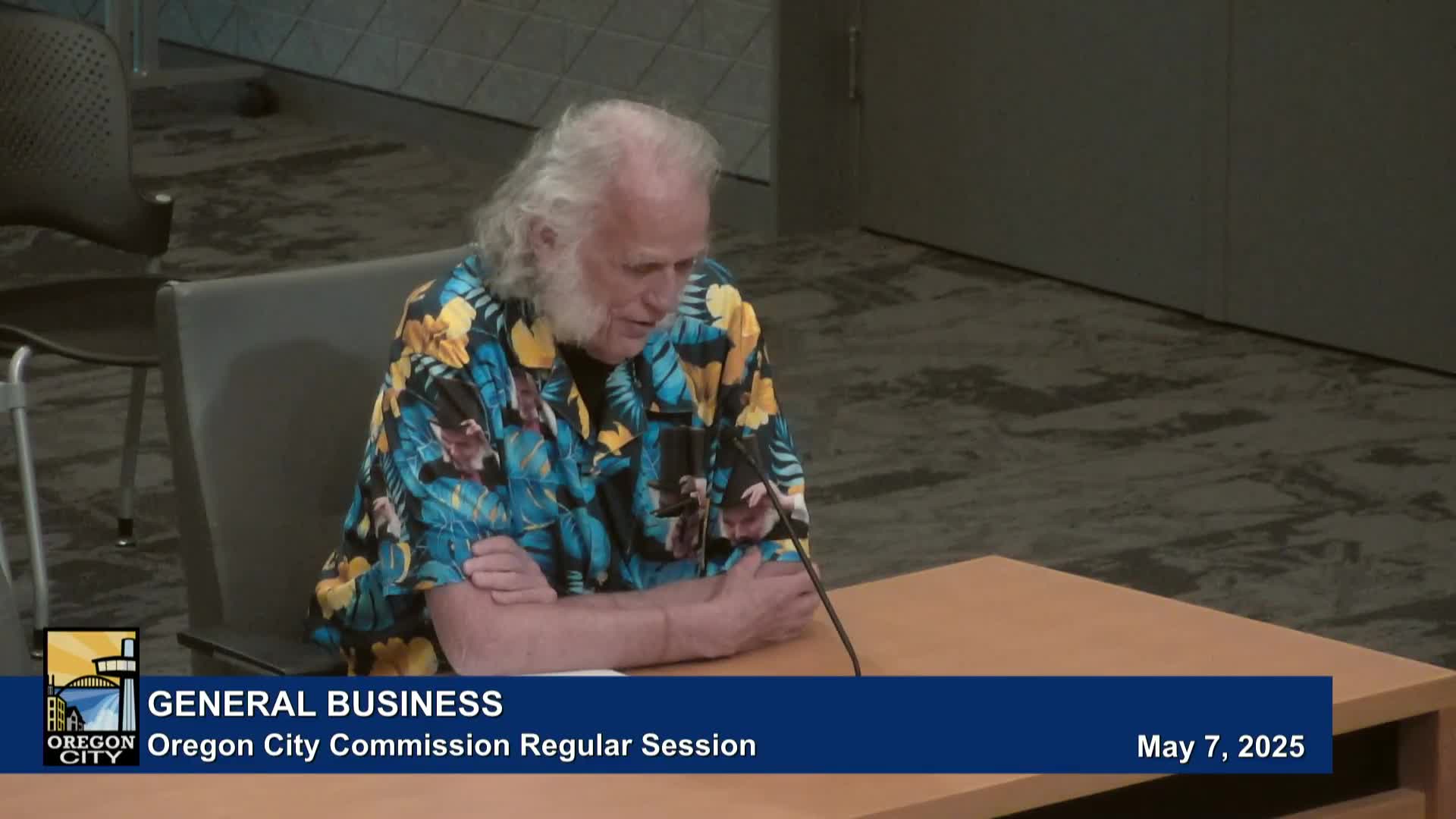Article not found
This article is no longer available. But don't worry—we've gathered other articles that discuss the same topic.
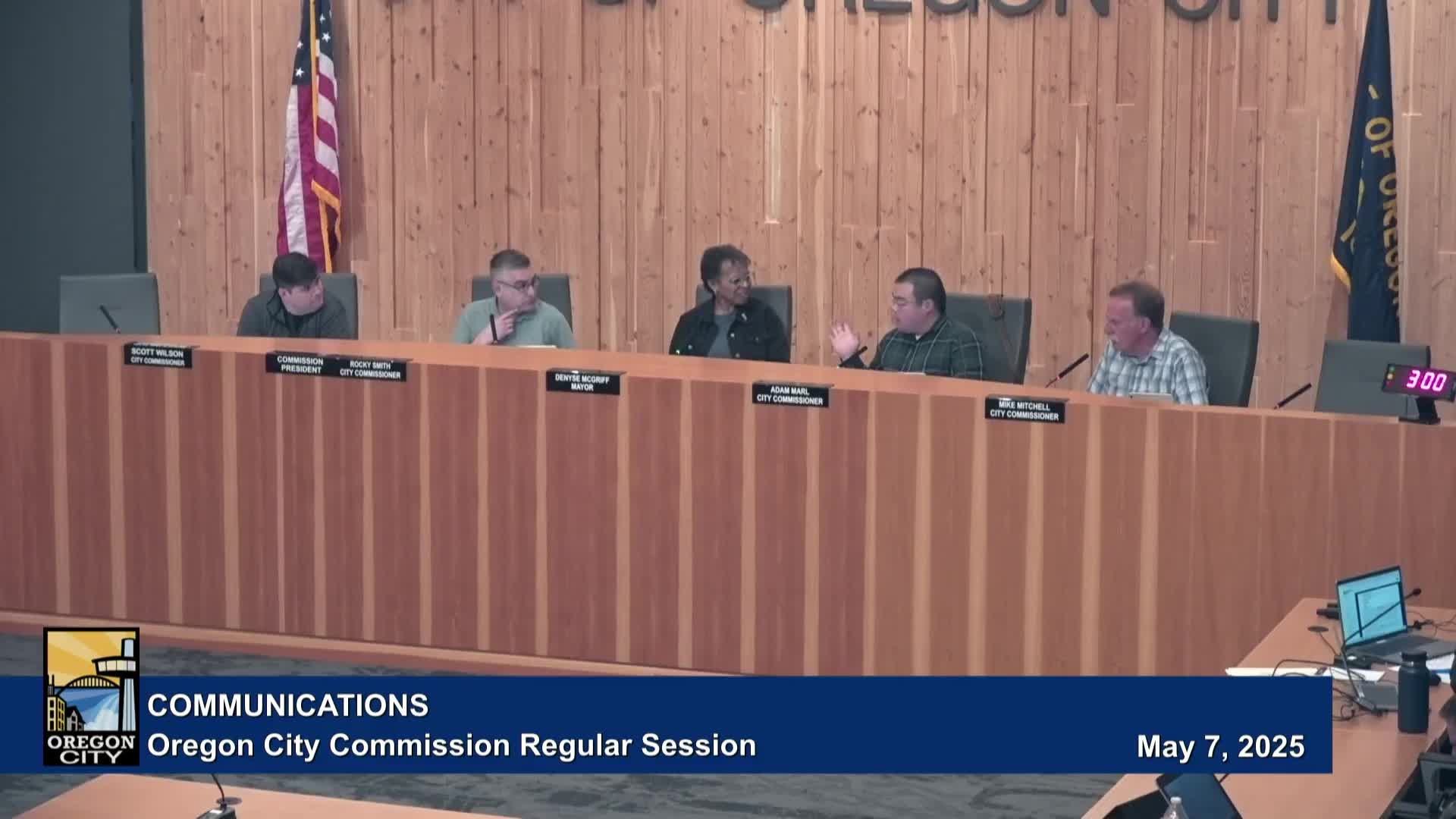
City officials report concerns over Oregon Government Ethics Commission guidance; League of Oregon Cities monitoring legislative response
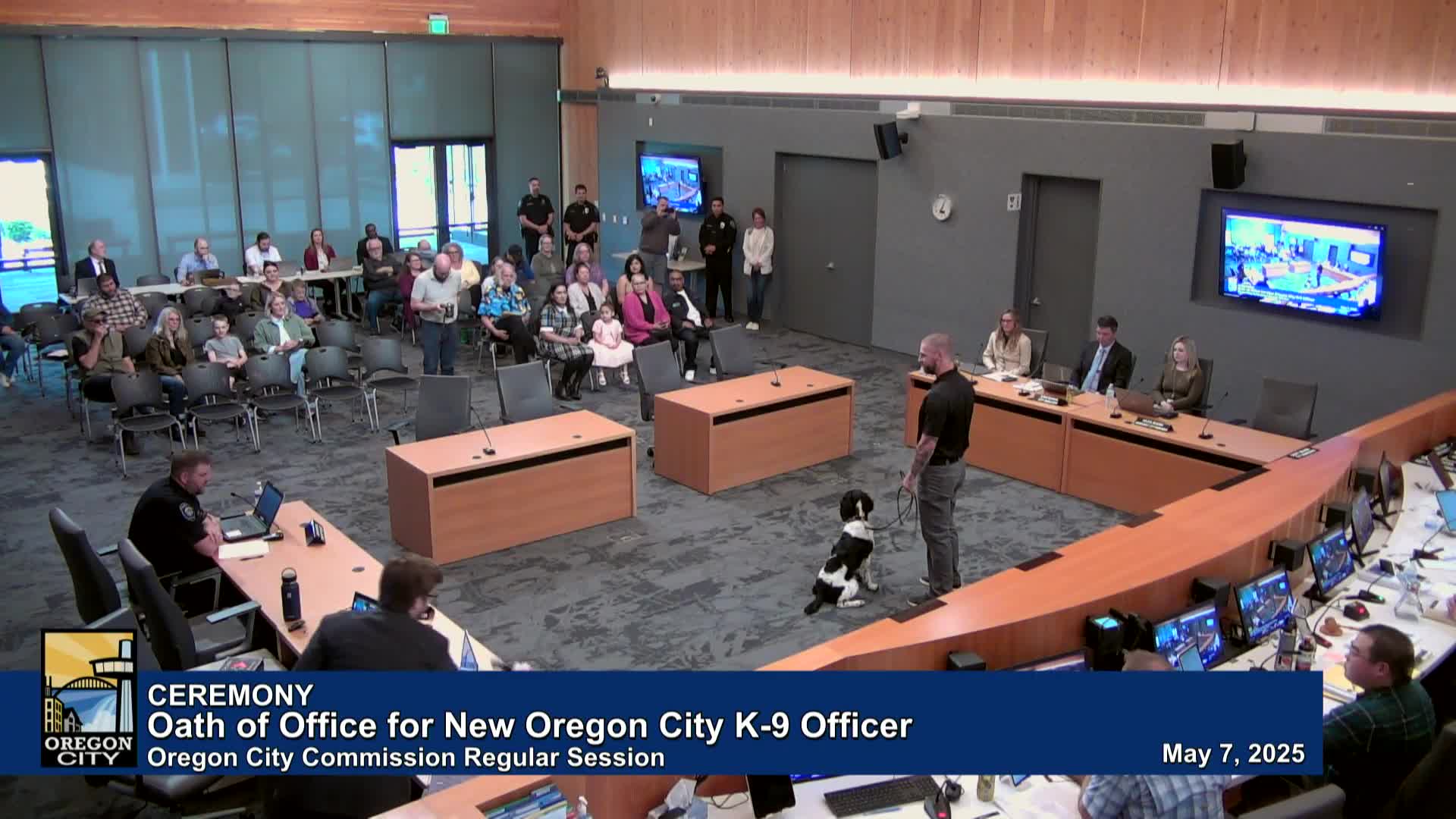
Oregon City swears in K-9 Alfie and Officer Jesse Olivares; commission issues several May proclamations
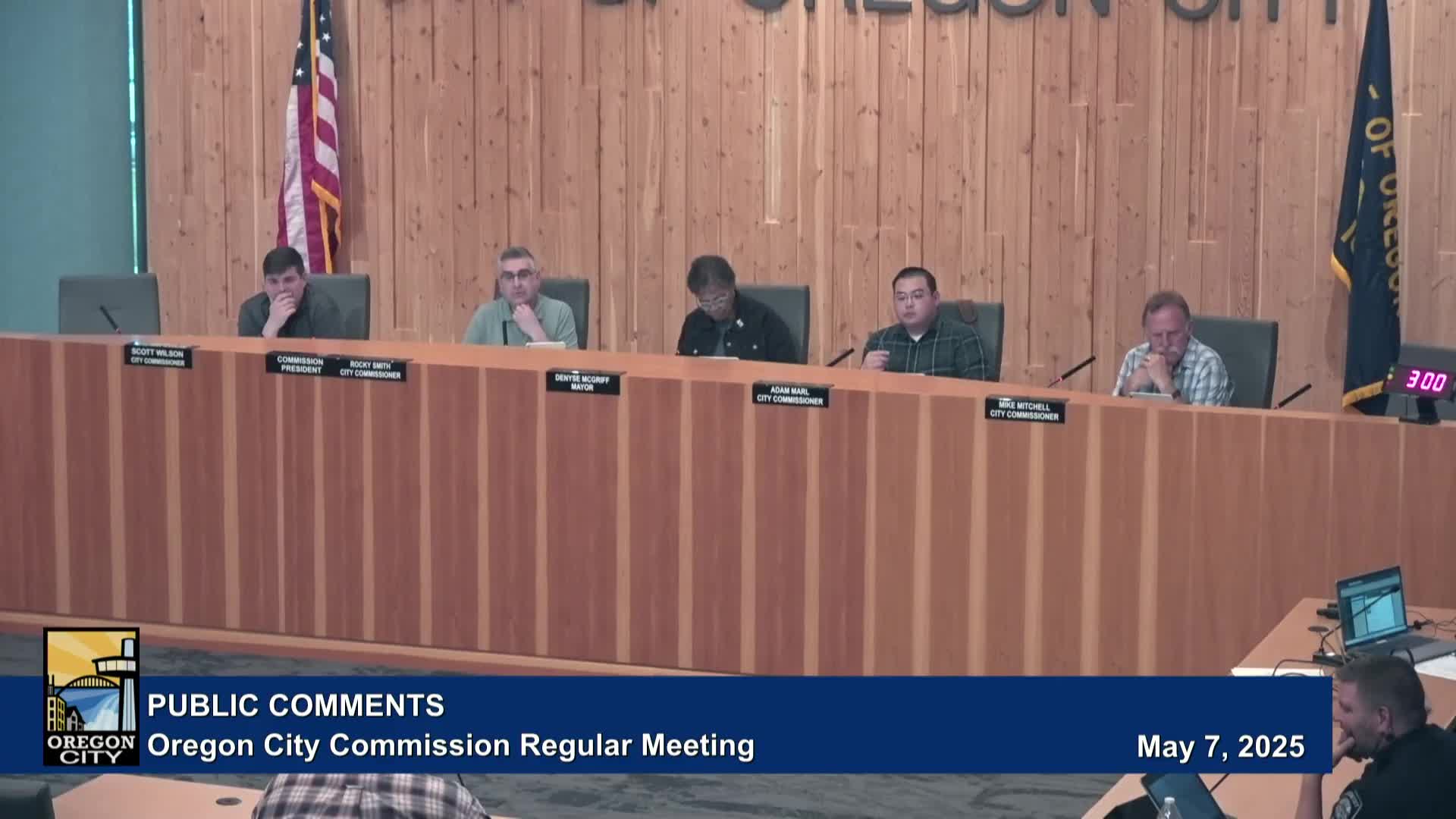
Local business owner urges investigation of city event grant handling, alleges delays and errors
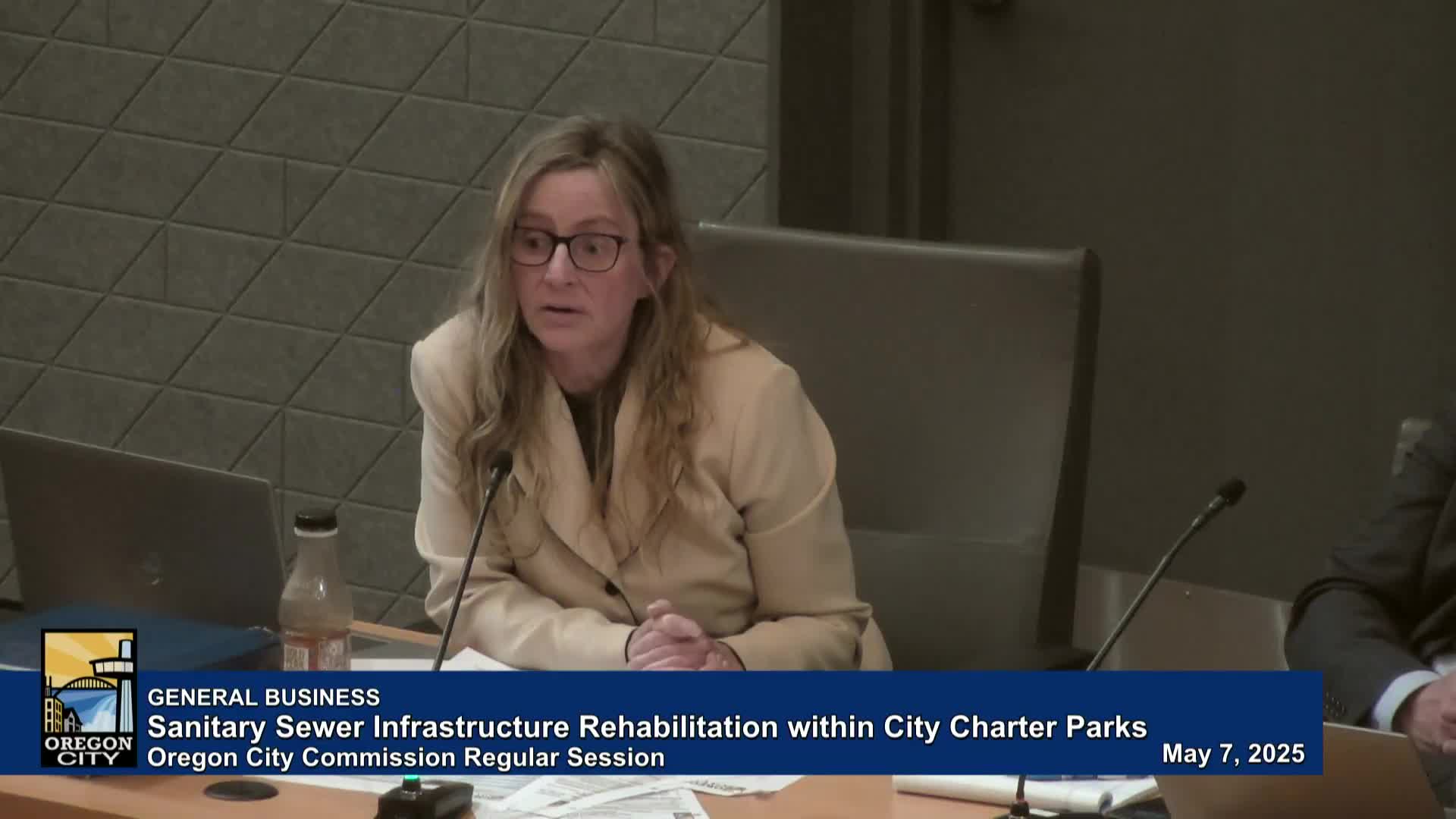
Commission finds no public vote required for sanitary sewer rehabilitation in charter parks; follows tree-removal rules
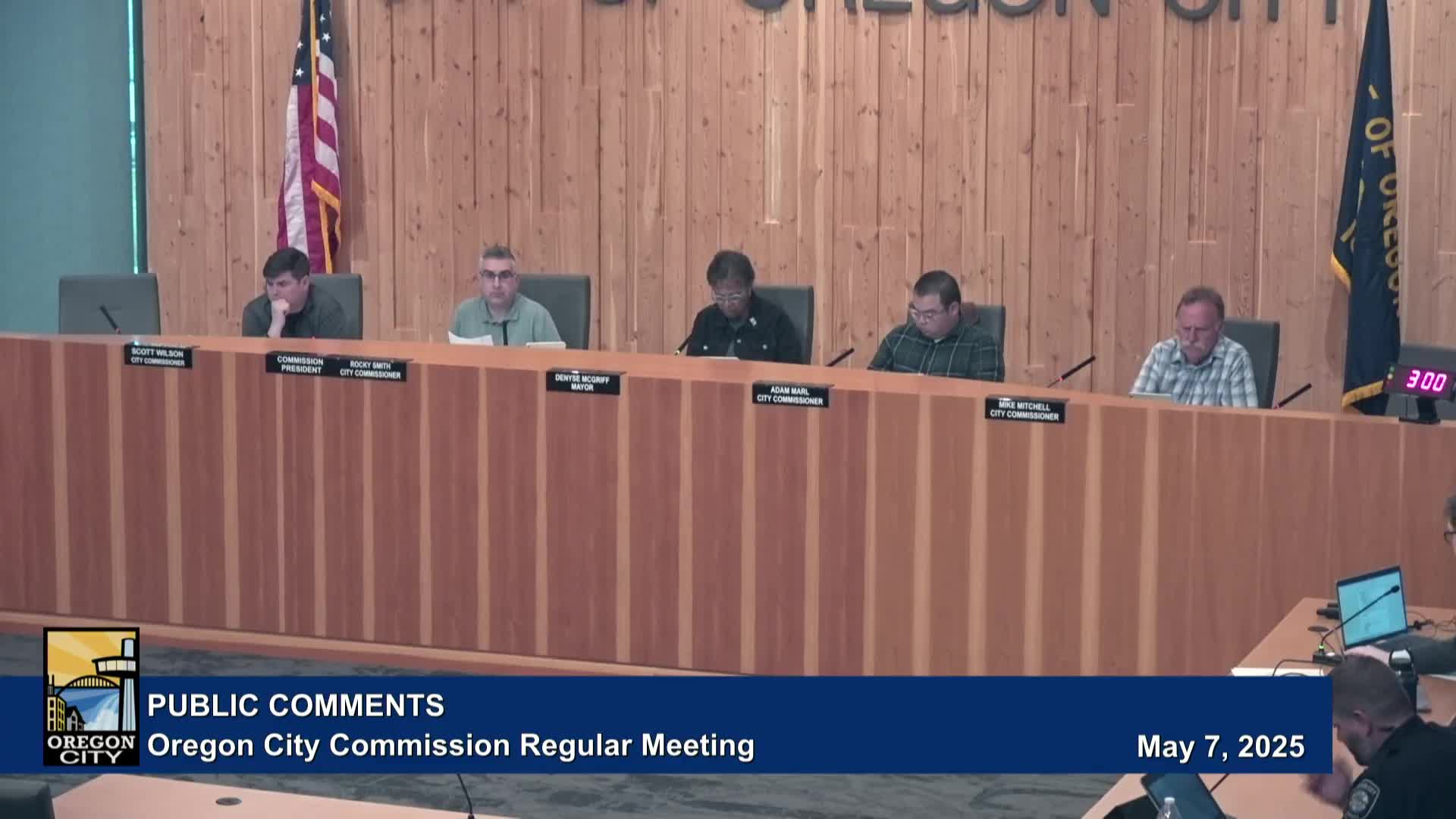
DEI task force asks commission to establish permanent Community DEI advisory group and staff liaison
